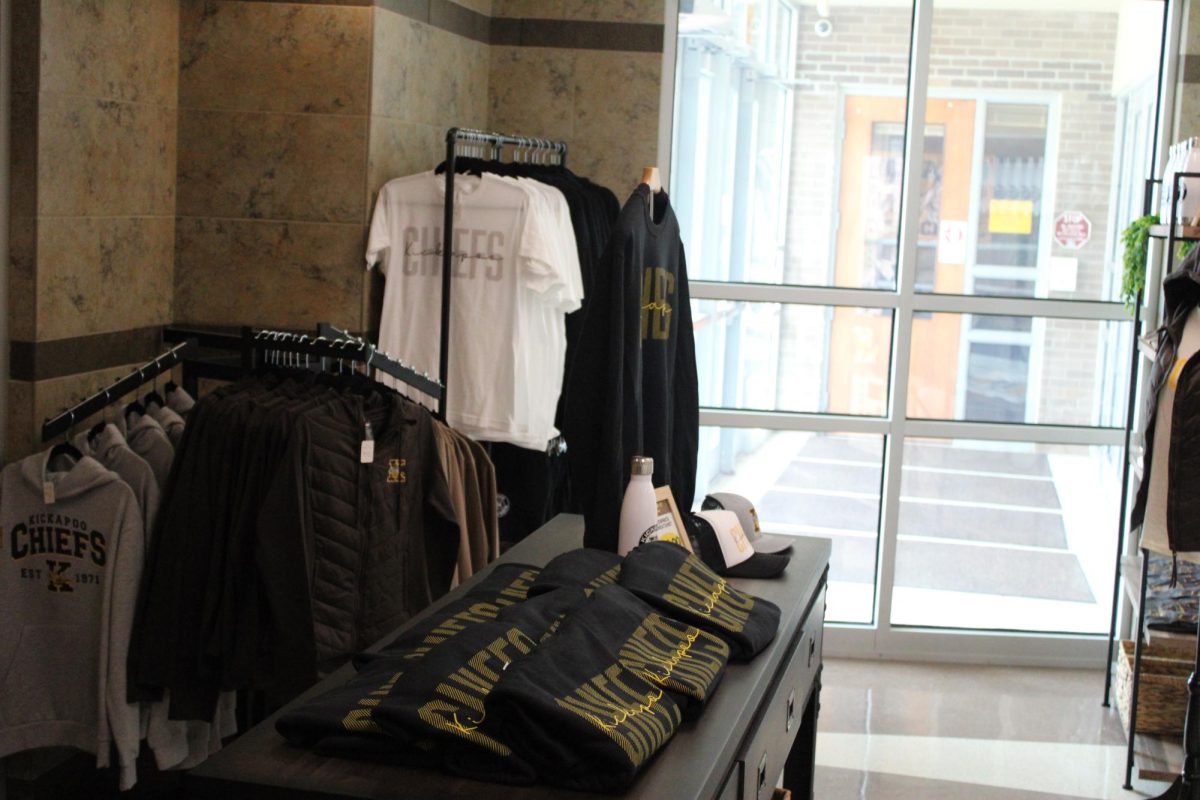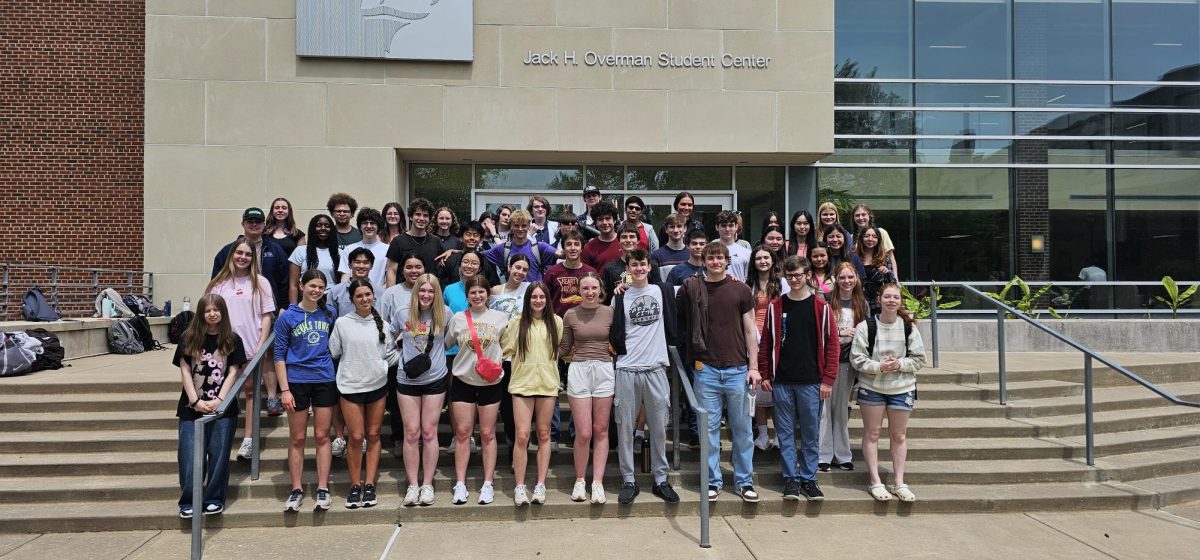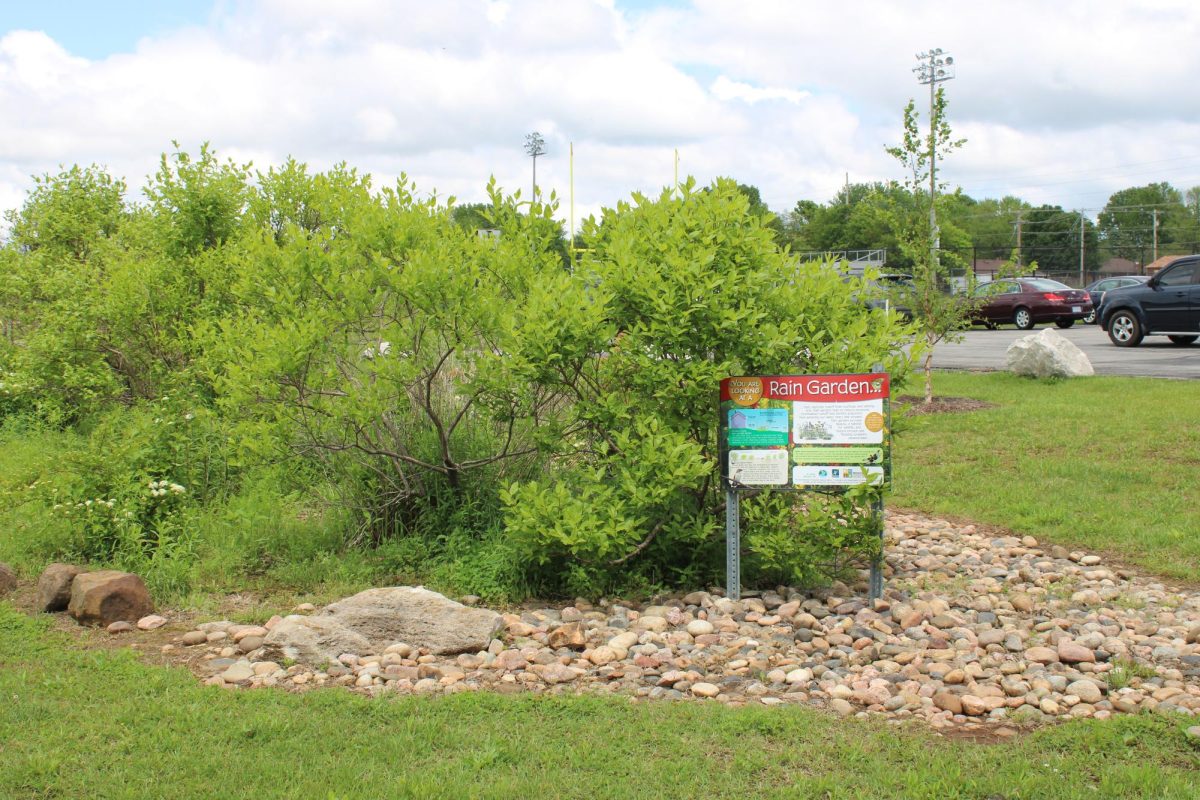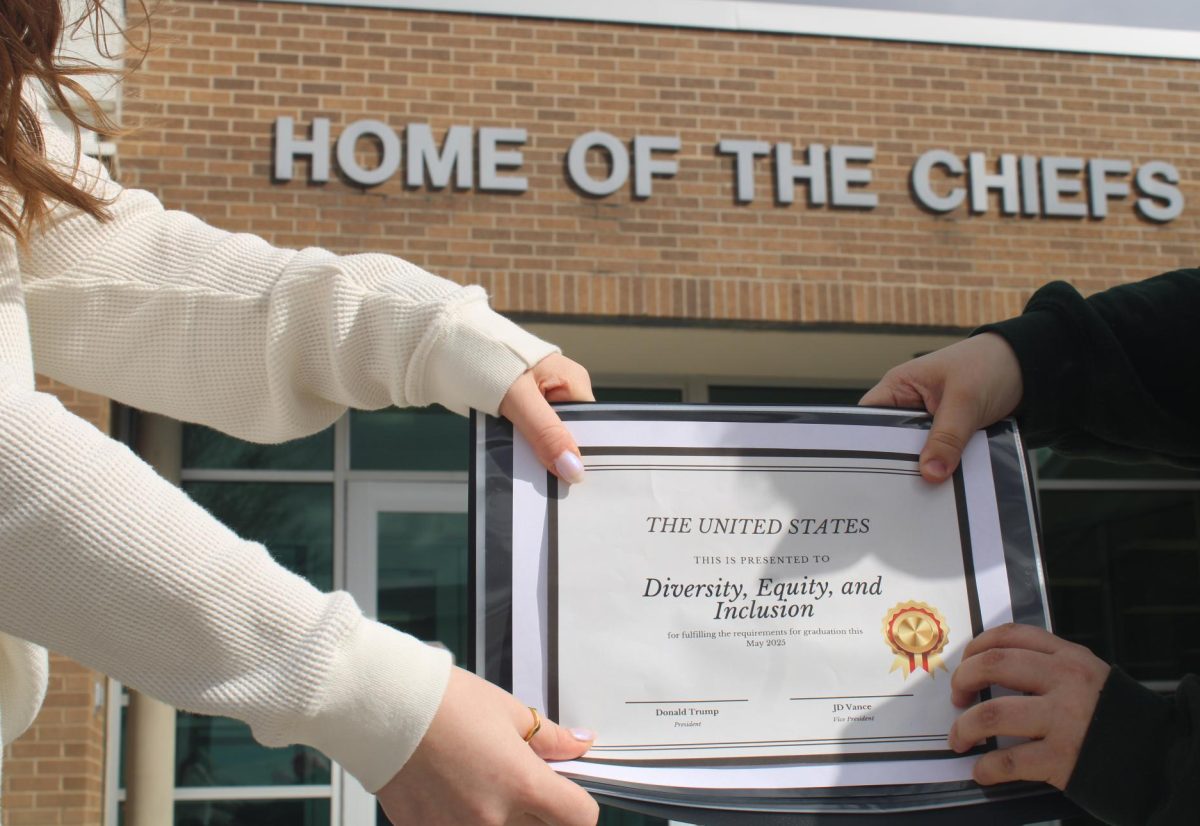Our science department is very expansive when it comes to their extracurriculars. Science Hub and Science Olympiad are two clubs offered for individuals interested in various aspects of the science field.
Science Hub focuses more on fun experiments, while Science Olympiad competes at competitions once a year. Club members of Science Olympiad can earn a seal of excellence on their diplomas for participating in competitions.
There are five different categories of competitions including Life, personal & social science, Earth and space science, Physical science and chemistry, Technology and engineering, and Inquiry and nature of science.
Ryan Hostetler, who sponsors Science Olympiad, requires new club members to request the events they would like to compete in when they join. He chooses what events they will be placed in based on seniority and skill sets. After choosing events, everyone begins researching and prepping for their competition.
Junior Leah Martin joined because of her general interest and love for science.
“I joined Science Olympiad because it’s really fun to be a part of competitions and it’s a good way to use what you learn in science to compete against other people. I think science is really interesting, and I’m pretty much in every science thing I can be involved in,” Martin said.

On February 24, Science Olympiad went to their regional competition at Missouri State University (MSU), implementing all of their research and hard work throughout the school year. The team won second place overall at their regional competition, meaning they will go to state. The state competition will also be held at MSU.
Many of the students in Science Olympiad placed in their events due to all the hard work they put into preparation. Senior Nathaniel Collins put substantial effort and attention to detail into his competitions.
“They give you a paper with all the details about your events, so typically months beforehand you read all the requirements. For my build events, I would put down the dimensions and things I might need to build. For study events, I would look at the topics I need to study and the most important things I need to know,” Collins said.
He competed in three events, including Codebusters, Astronomy, and Scrambler. Collins placed second in Codebusters and second in Scrambler.
In Codebusters, teams cryptanalyze and decode encrypted messages. Astronomy is an event that requires teams to demonstrate an understanding of Stellar Evolution, star formation, and exoplanets. Scrambler involves building a mechanical device that uses energy from a falling mass to transport an egg along a track as quickly as possible without breaking the egg.
Senior Carter McCord also competed in various events.
“My events were Codebusters, Write It Do It, Forestry, and Fermi Questions. For those, there are a lot of practice tests online that I used to prepare,” McCord said.
He placed first in Forestry and second place in Codebusters, along with Collins.
Write It Do It is where one participant writes a description of an object and how to build it, and the other participant attempts to construct the object from the description. In Forestry, competitors are assessed on their general forestry knowledge. Fermi Questions is an event where teams provide answers to a series of science-related questions that seek fast, rough estimates of a quantity that is either difficult or impossible to measure directly.
Junior Misha McNeil competed in Forestry, Ecology, and Fossils.
“The main event that I prepped for was Forestry, and there was a list of 100 to 150 trees, so I took a bunch of pictures of them and put them in a Google doc with information about their habitat and the economic values and put all the information in one giant binder to study. For Ecology, I just read the directions and studied everything it said to do, and I did the same with Fossils,” McNeil said.
She placed first in Forestry alongside McCord and third in fossils.
In Ecology, participants answer questions about ecology and adaptations in North American biomes. Teams in Fossils must identify and classify fossils and demonstrate their knowledge of ancient life.
Overall, the students in Science Olympiad performed proficiently in their individual events and as a team.








